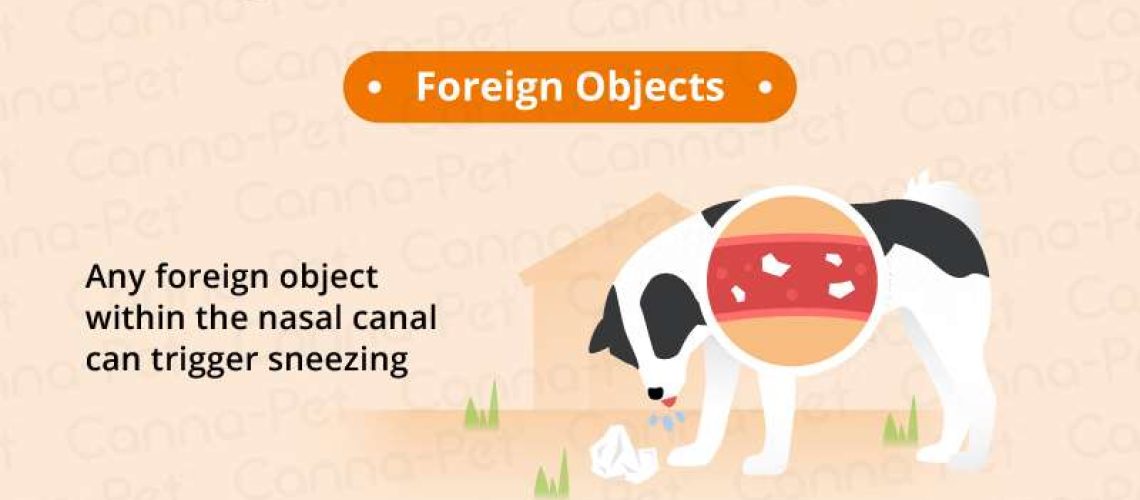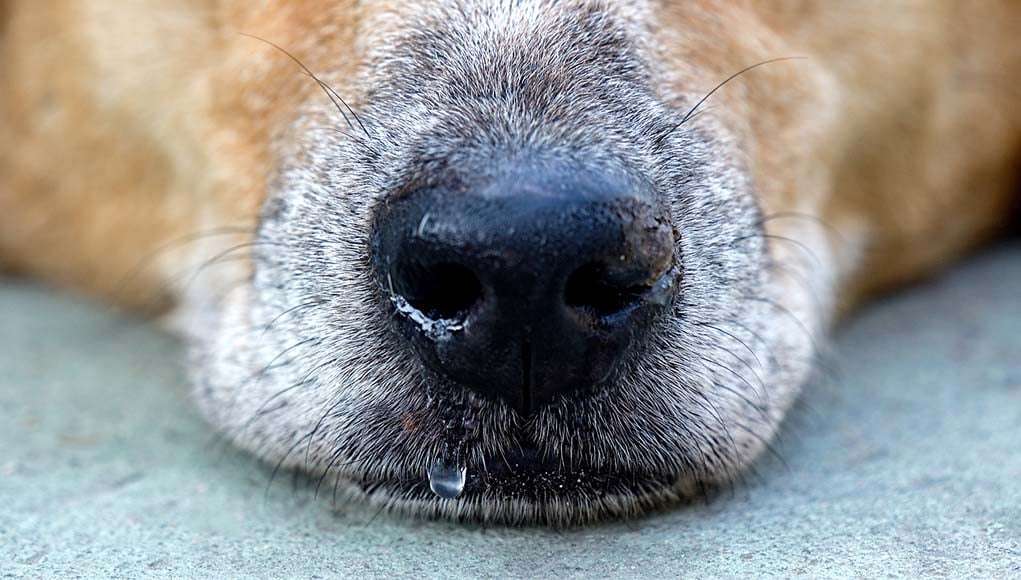Key Takeaways:
- Sneezing in dogs can be caused by various factors, including allergies, irritants, infections, or foreign objects.
- If your dog is sneezing excessively or experiencing other symptoms such as nasal discharge or difficulty breathing, it is important to consult a veterinarian for proper diagnosis and treatment.
- Some common allergens that may cause sneezing in dogs include pollen, dust mites, mold spores, certain foods, or chemicals.
- Dogs with short snouts (brachycephalic breeds) are more prone to sneezing due to their anatomy and may require special care.
- Preventing exposure to potential irritants and keeping your dog's environment clean can help reduce sneezing episodes and improve their overall respiratory health.
Introduction:
Have you ever wondered why your furry friend suddenly starts sneezing? It may seem like a harmless act, but understanding why your dog sneezes can actually be quite beneficial. Not only will it help you ensure their well-being, but it can also strengthen the bond between you and your four-legged companion. So, let's delve into the fascinating world of dog sneezing and uncover the reasons behind this adorable yet perplexing behavior.
Did you know that dogs often use sneezing as a form of communication? Yes, that's right! Just like humans, dogs have their own unique ways of expressing themselves. Sneezing can indicate various things, from simple allergies to more serious health concerns. By unraveling the mystery behind your dog's sneezes, you'll be equipped with valuable knowledge that can help keep them happy and healthy.
Picture this: You're playing fetch in the park with your canine buddy when suddenly they start sneezing uncontrollably. You may be tempted to dismiss it as a minor inconvenience or an allergy to pollen. However, what if I told you that certain breeds are more prone to specific health issues associated with excessive sneezing? Understanding this topic is essential because it allows us to recognize potential problems early on and seek proper veterinary care.
Now, let's get down to business and explore some common reasons why dogs sneeze. From foreign objects stuck in their noses to respiratory infections or even just plain excitement, there are numerous factors that could trigger those adorable little "achoo"s. By gaining insight into these causes, we'll not only become more attuned to our furry friends' needs but also be able to take proactive measures when necessary.
So buckle up and get ready for an enlightening journey into the world of doggy sneezes! Whether you're a seasoned pet owner or simply curious about our canine companions' peculiar behaviors, understanding why your dog sneezes will open up a whole new level of connection and care. Get ready to decode those cute sneezes and embark on a path towards a healthier, happier bond with your furry best friend.
Common Reasons for Dog Sneezing
Dogs sneeze for various reasons, just like humans. One common reason is that something may be irritating their nasal passages, such as dust, pollen, or even a foreign object. Another common cause of dog sneezing is allergies. Dogs can be allergic to certain foods, environmental factors like pollen or mold spores, or even certain medications.
In some cases, dogs may also sneeze due to respiratory infections or illnesses. These can be caused by viruses or bacteria and may require veterinary treatment. Additionally, dogs with brachycephalic breeds (like Bulldogs or Pugs) are more prone to sneezing because of their short snouts and narrow airways.
Allergies and Dog Sneezing: How are they connected?
Allergies are a common cause of dog sneezing. Just like humans, dogs can have allergic reactions to certain substances in their environment. Common allergens for dogs include pollen from trees, grasses, and weeds; dust mites; mold spores; and certain foods.
When a dog comes into contact with an allergen that they are sensitive to, their immune system reacts by releasing histamines. Histamines cause the blood vessels in the nasal passages to dilate and the tissues to become inflamed, leading to sneezing and other allergy symptoms.
Health Conditions that may cause Frequent Dog Sneezing
Frequent dog sneezing can sometimes be a sign of an underlying health condition. Some possible health conditions that may cause frequent sneezing in dogs include:
- Nasal infections: Infections in the nasal passages can lead to inflammation and irritation, causing dogs to sneeze.
- Nasal tumors: Tumors in the nasal passages can obstruct airflow and cause sneezing.
- Dental problems: Dental issues like infected teeth or gum disease can lead to sinus infections and sneezing.
- Foreign objects: If a dog inhales or sniffs up a foreign object, it can irritate their nasal passages and trigger sneezing.
Can Dust and Pollen make your Dog Sneeze?
Yes, dust and pollen can make dogs sneeze. Just like humans, dogs can be allergic to these common environmental allergens. When a dog with allergies comes into contact with dust or pollen, their immune system reacts by releasing histamines, which leads to sneezing and other allergy symptoms.
To help reduce your dog's exposure to dust and pollen, you can try keeping them indoors during peak pollen times, using air purifiers in your home, regularly cleaning their bedding, and wiping down their paws after outdoor walks.
Is it normal for Dogs to Sneeze after Outdoor Play or Rolling in the Grass?
It is not uncommon for dogs to sneeze after outdoor play or rolling in the grass. This is because they may come into contact with allergens like pollen or grass particles that irritate their nasal passages. Additionally, physical activity can sometimes cause dogs to inhale small particles that trigger sneezing.
If your dog only sneezes occasionally after outdoor play or rolling in the grass and does not show any other signs of discomfort or illness, it is generally nothing to worry about. However, if your dog frequently sneezes after outdoor activities or shows other concerning symptoms like coughing or difficulty breathing, it is best to consult with a veterinarian.
Home Remedies and Treatments to Help your Dog's Sneezing
If your dog is sneezing due to allergies or minor irritants, there are some home remedies and treatments that may help alleviate their symptoms:
- Keep your home clean: Regularly vacuum and dust to reduce allergens like dust mites in your home.
- Use a humidifier: Adding moisture to the air can help soothe irritated nasal passages.
- Try natural remedies: Some natural remedies, such as saline nasal sprays or herbal supplements, may provide relief for dogs with allergies.
- Avoid triggers: If you know what triggers your dog's sneezing, try to minimize their exposure to those allergens.
It is important to note that these remedies may not work for all dogs, and it is always best to consult with a veterinarian before trying any new treatments. In some cases, medication prescribed by a vet may be necessary to manage your dog's sneezing and allergies effectively.
In conclusion, dogs may sneeze for various reasons such as allergies, irritants, or even excitement. If your dog continues to sneeze excessively or shows other concerning symptoms, it is best to consult a veterinarian for proper diagnosis and treatment.
Should I be worried if my dog is sneezing?
If your dog sneezes occasionally, it is considered normal. However, if your dog is experiencing excessive, violent, or uncontrollable sneezing, along with symptoms like nosebleeds, discharge, nose-pawing, or fever, it is advised to seek veterinary assistance.
Why is my dog sneezing so much all of a sudden?
Dogs sometimes sneeze while playing, when they smell pollen, or to get attention. If a dog sneezes frequently, it could be due to nasal mites, a tooth infection, or an object stuck in their nose. It's important to consult a veterinarian if your dog sneezes excessively and also has a runny nose, difficulty breathing, or trouble eating.
Do dogs sneeze when they are sick?
Dogs and cats can get colds, and their symptoms are similar to those in humans. They may experience nasal discharge, difficulty breathing due to congestion, sneezing (particularly wet sneezes), watery eyes, and lethargy (increased napping and low energy). These cold symptoms usually last for about 5-10 days.
How do I know if my dog has nasal mites?
The typical symptoms of a nasal mite infestation include nosebleeds, sneezing, rapid inhalation of air (known as "reverse sneezing"), difficulty smelling, itching in the face, mucus coming from the nose, difficulty breathing, shaking of the head, and high-pitched, noisy breathing.
Is sneezing a symptom of kennel cough?
Kennel cough is easily identified by its distinctive symptom, which is a loud, hacking cough or retch. Other symptoms include a runny nose, discharge from the eyes, and sneezing. If left untreated or in more severe cases, kennel cough can lead to a decrease in appetite, lethargy, depression, and fever.
What illness causes dogs to sneeze?
Various dental issues such as tumors, abscesses, decayed teeth, and root infections can cause sneezing in dogs, along with other symptoms. It is possible to visually identify the problem by examining the dog's mouth, but it may not always be visible.

















